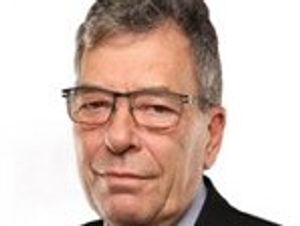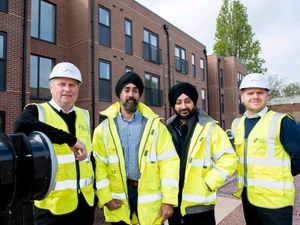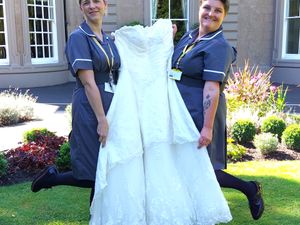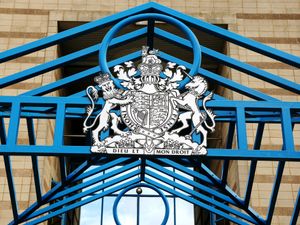Chief executive speaks of importance of Cannock Chase Hospital after funding boost
A hospital leader has spoken of the importance of a Staffordshire hospital after it received a funding boost to enable expansion.

Professor David Loughton, chief executive of Royal Wolverhampton NHS Trust (RWT), said Cannock Chase Hospital was a vital part of the trust after it had received capital funding of £25 million initially, rising to £36 million, after being named as an accredited hub for elective surgery.
Surgical hubs, which are separated from emergency services, are part of plans nationally to increase capacity for elective care with more dedicated operating theatres and beds.
Cannock exclusively performs planned surgery and mainly focuses on high volume, low complexity (HVLC) surgery across ophthalmology and orthopaedics.
Professor Loughton said the hospital had been named as one of eight hubs accredited under the NHS England’s Getting It Right First Time (GIRFT) programme during the Royal Wolverhampton Trust Public Board meeting on Tuesday.
Speaking during his Chief Executive’s Report, he said the hospital accreditation was a boost for people in Wolverhampton, Walsall and South Staffordshire, who are in need of elective treatment as it would allow for more operating theatres to be built.
He said: "On February 3, Professor Tim Briggs visited Cannock and we were successfully accredited as one of the eight hubs and the capital funding with that is, initially, £25 million, going up to £36 million.
"That will allow us to build another four operating theatres in Cannock, add scanners and also bring two of the wards that were used for other things back into service.
"Believe me, Cannock Chase Hospital has been so important to both Walsall and Wolverhampton because we have got a secure elective facility and, in the first week of January, very few hospitals in this country were able to carry out elective surgeries, but we were, so that is good."
Professor Loughton also discussed vacancy rates in the NHS and said he was pleased to report that the RWT had one of the lowest vacancy rates in the country, at 2.6 per cent, compared to other trusts running at close to 12 per cent.
He said: "That is a fantastic achievement in very difficult times and we are still in the business of being able to afford high quality people."
His final topic of the report was about the upcoming doctors in training strike, saying that it would be a difficult time with the strikes taking place over a 96-hour period between Tuesday, April 11 and Saturday, April 15, but the trust had robust plans in place to deal with it.
He said: "It is a difficult time as we are running into Easter and it is traditionally when a lot of staff with school-aged children are taking time off.
"I'm not making any criticism of them at all and I appreciate their position, but we have had fairly robust plans in place for when it happens."




